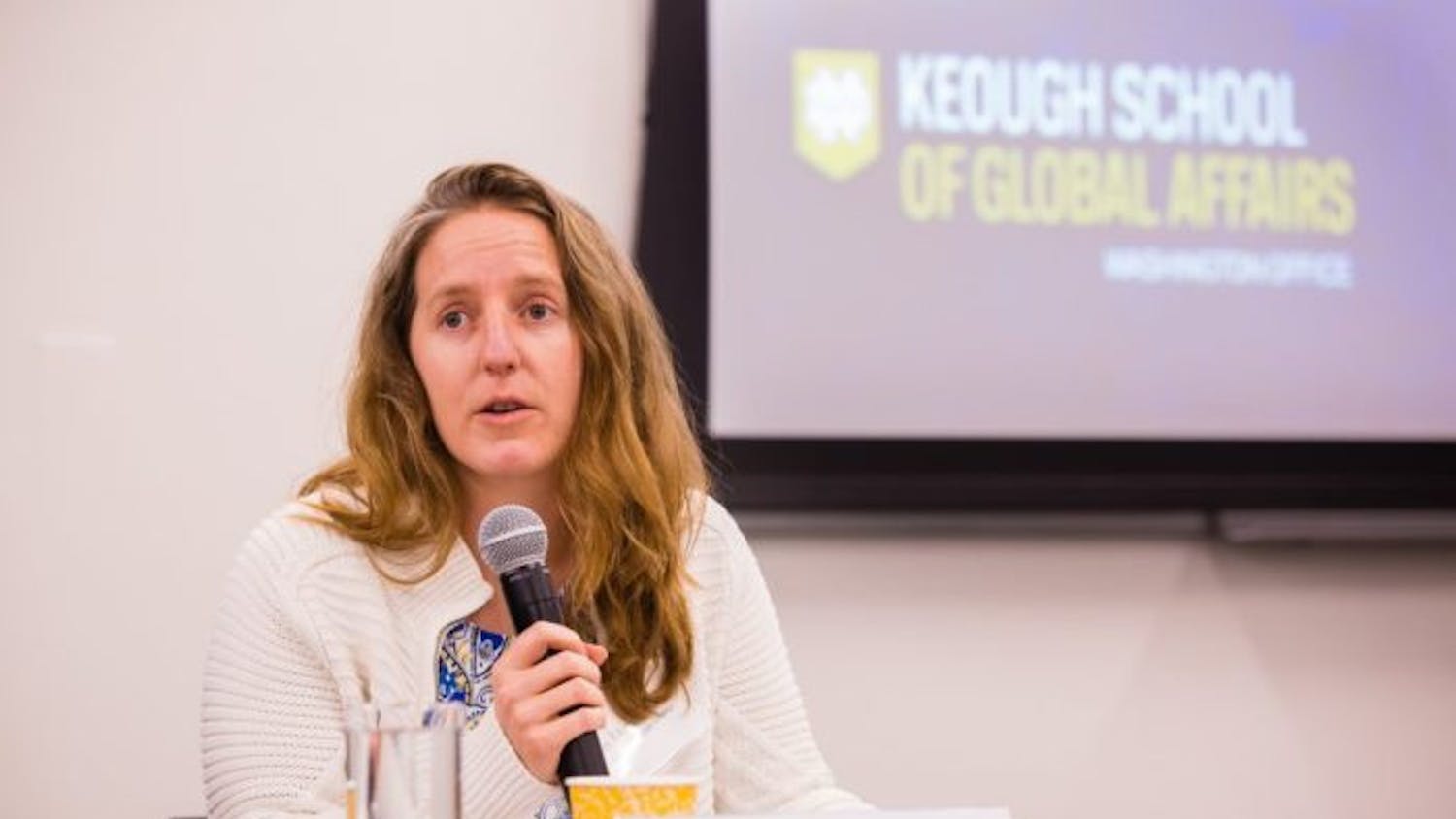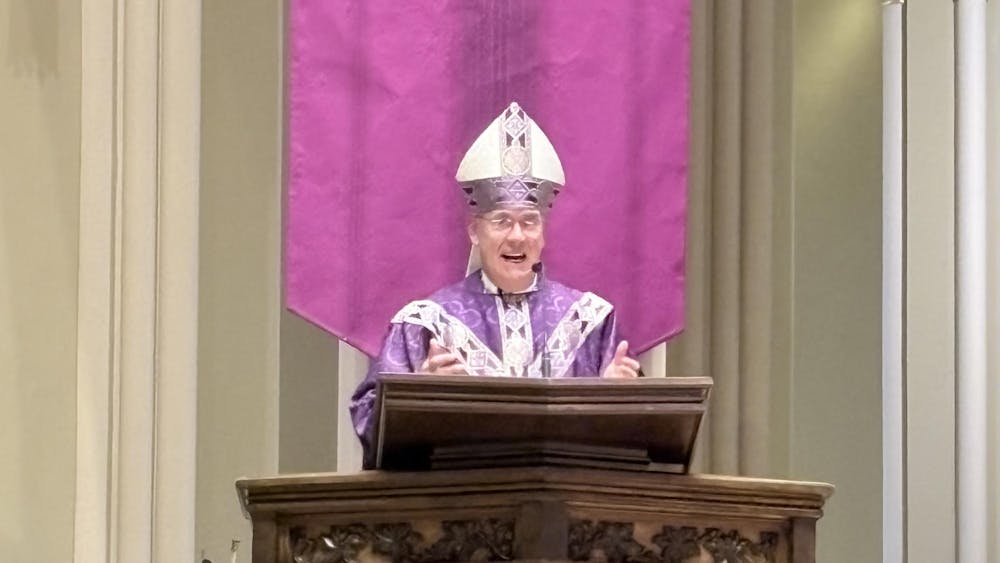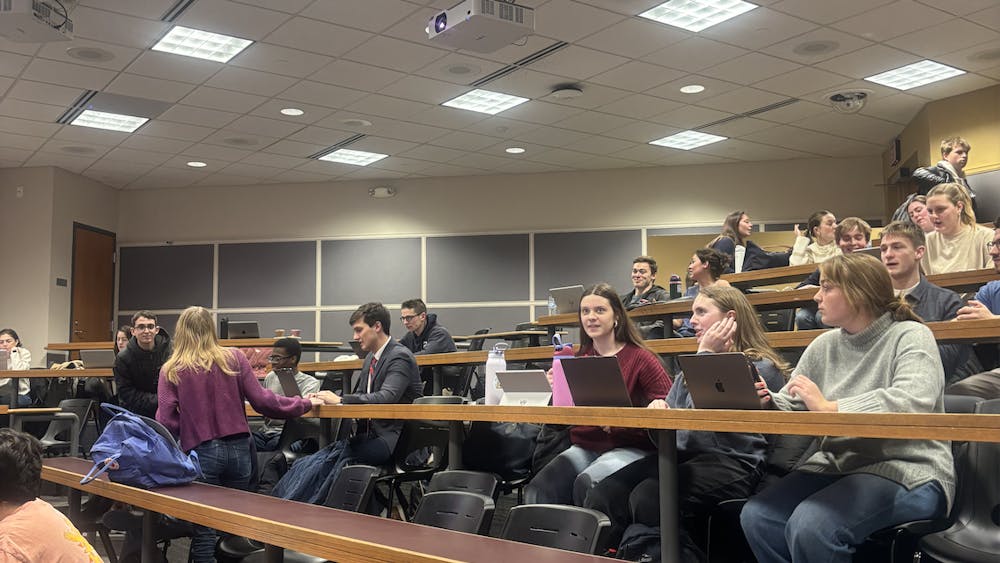In preparation for Thanksgiving, Saint Mary’s faculty and students hosted a panel to discuss compassion, civil discourse and concrete action in light of the recent presidential election.
College President Jan Cervelli said differing beliefs should not be a divisive factor in a community.
“We are the Saint Mary’s family, and families sometimes disagree,” she said. “We should not only respect the disagreement, but revel in it.”
Phyllis Kaminski, professor of religious studies, referenced the Charter of Compassion, written by leading religious scholar Karen Armstrong to advocate for compassion internationally.
“We are part of a world-wide movement that is deeply spiritual and inclusive,” she said. “I hold here to the most basic tenet. All human beings are born with the capacity for compassion, and it must be cultivated if we as human beings are to survive and thrive.”
Megan Zwart, assistant professor of philosophy, offered recommendations for civil discourse. Her first recommendation is to “remember not to be a jerk, and assume that your conversation partner is not a jerk either.”
“It’s a view that any minimally decent person should hold,” she said. “You can ground this view in the church teaching that we are all grounded in the image of God, or you can see universal dignity as consistent with a secular commitment to human rights. You can understand our shared dignity by a means of basic human empathy.”
Zwart said it is important to pay attention to the context in which the discourse is happening.
“If someone is afraid for her safety or security, the context is not a good one for productive dialogue,” she said. “If someone is in pain, listen to her pain. If someone is fearful, help her find security. It doesn’t matter if you share her pain or her fear. Respond to her immediate need and save the argument for a less emotionally-charged time.”
According to Zwart, another step needed for civil discourse is to challenge assumptions.
“If you argue with someone who has very different assumptions from you and you don’t recognize this, you’re not going to have a productive conversation; you’re just going to talk past each other,” Zwart said. “Investigating assumptions means you have to be up to the realization that your assumptions may not weather the test of critical scrutiny.”
She said it is also important to take time to determine the facts of a situation.
“Be intellectually responsible,” she said. “Do some research, and then do some research on the sources you trust.”
Approaching situations with curiosity instead of defensiveness is another way to conduct civil discourse, Zwart said. She said our first impulses are to question the other person and then to flee.
“We’re wired to defer to existing beliefs, and when we confront with new information that doesn’t conform to those beliefs, it’s tempting to dismiss those beliefs or get defensive,” she said. “Do not flee from the unease it causes in you in a spirit of defensiveness. Move towards it in a spirit of curiosity.”
Zwart said, sometimes, there are views that are so different or so hostile that a civil conversation cannot be possible. However, this is not the majority of views, she said.
Junior Abbie Spica said she has thought about what it means to be “active” after the 2016 election. She said action is movement, but it is more than just movement; it is a “series of verbs.”
“What is important about action is that you’re heard, that you feel heard in your environment, that you listen, and that you realize that every action you do — what is it for? Why are you doing this?” she said.
Spica said there are three areas to concentrate on in terms of action: social media, family and loved ones and self-care. Being cognizant, courteous and careful are ways to be active.
“Use your social media as a platform for discussion, not a dueling ground for dismissiveness,” she said. “Do not demonize anyone for their political beliefs. You don’t have to agree with them. … By taking care of yourself, and recognizing your value as a person, that’s the first thing it takes to be active and do anything.”
Spica said people should use action to move forward after the election.
“I ask that we don’t move on,” she said. “I ask that we move forward.”
Read More
Trending









